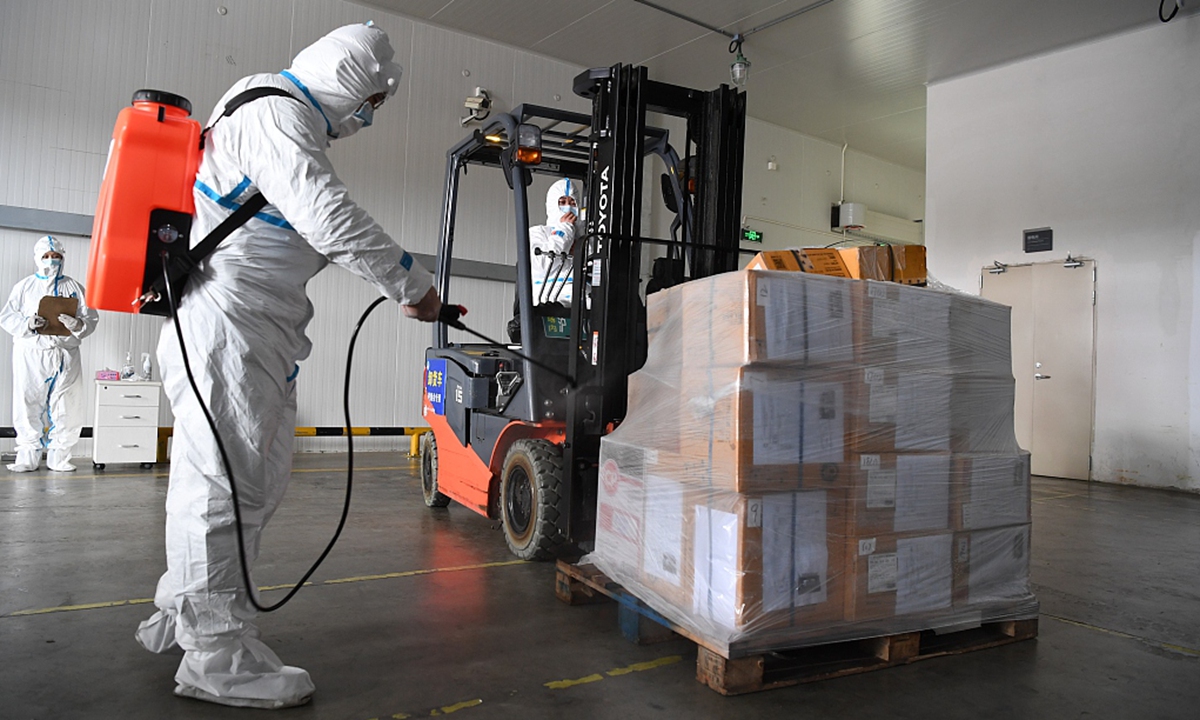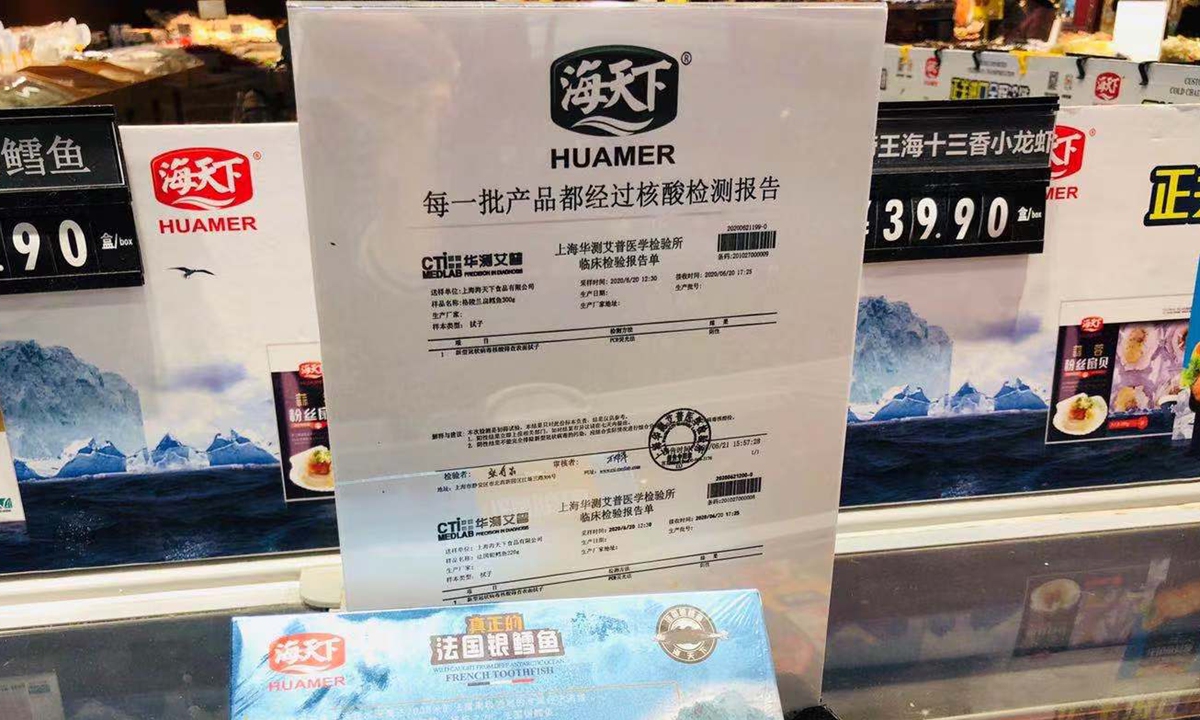Hefei requires real name for imported cold-chain purchases
By Yu Xi in Hefei and Cui Fandi in Beijing Source: Global Times Published: 2020/12/9 20:23:41

cold chain Photo:VCG
The city of Hefei is joining other parts of the nation in taking strict measures regarding its imported cold-chain market, requiring identity information from buyers of these products, but the Global Times found that the new policy will have a limited effect because many vendors have suspended such business.
Hefei, the capital of East China's Anhui Province, issued an emergency notice on Monday, ordering real-name purchases for imported cold-chain food together with strict disinfection and multiple certification requirements.
At Hefei's largest wholesale farmers' market, Baida Zhougudui, a Global Times reporter learned from cold-chain merchants that the market stopped selling imported frozen food last month. A loudspeaker there keeps broadcasting the ban on such sales on Wednesday when most venders had closed.
At a Carrefour mall, a Global Times reporter did not see any imported cold-chain food on sale. A person in charge at the mall surnamed Ma said due to recent cases of imported food testing positive for COVID-19, the facility stopped selling such products in November.
Notices in the fresh food section showed that all domestic cold-chain products on shelves had tested negative for COVID-19. Ma said the mall had not yet received notices to require real-name purchases.

Nucleic acid testing report for frozen food in the fridge. Photo: Yu Xi/GT
The Global Times did not find any frozen imported food from a local supermarket Yonghui. Customers are picking fresh pork and other products at late night.Hefei's new rule came after successive reports of imported cold-chain food samples testing positive for COVID-19 in cities across China in the past few months, which experts noted could pose a risk of another outbreak in China in this winter. More than 40 such cases have been reported in at least 16 provinces and regions, and they have caused related infections in cities like North China's Tianjin and East China's Qingdao.
A number of cities including Beijing and Tianjin earlier launched new rules to regulate cold-chain food markets, but Hefei marks the first Chinese city to lock the last link on the cold-chain traceability chain by adding consumers.
Hefei's latest notice orders the industry to enhance mapping and inspection of key sites of cold-chain imports, including third-party cold storage, food processing enterprises, catering units, shopping malls, supermarkets and wholesale markets. It will apply dynamic management to supervise epidemic prevention and control measures among cold-chain employees, to ensure timely detection and control of COVID-19 epidemic risks.
Four certificates are mandatory before an imported cold-chain product can go to market: a traceability certificate, certificate of entry inspection and quarantine, nucleic acid testing certificate, and disinfection certificate.
Consumers must register with their real names to ensure full traceability.
Posted in: SOCIETY,CORONAVIRUS